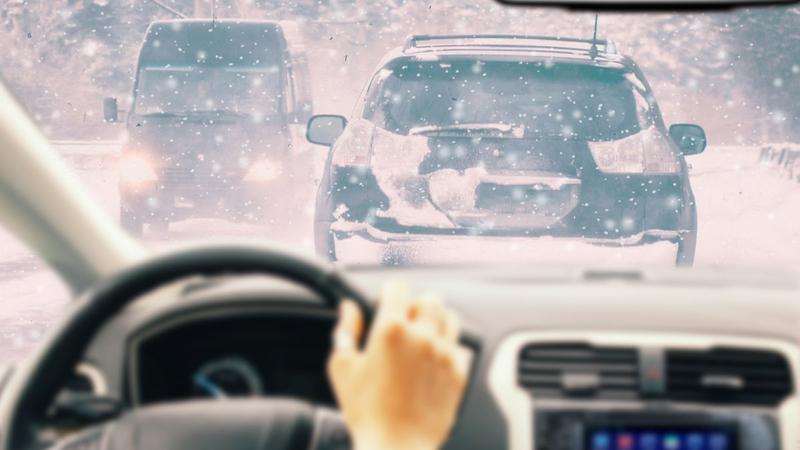National Safe Driving Week is December 1st – 7th. The annual campaign aims to spread safe driving awareness as distracted, impaired driving and unsafe driving is all too common during the holiday season.safety precautions before heading out. Review these tips as we acknowledge National Safe Driving Week and embrace the season that’s upon us.
Pack an emergency car kit
Being stranded is never pleasant, but it’s definitely worse during the winter when it’s cold, wet, and darker than usual. While you may already have an emergency car kit that includes a spare tire, first aid kit, phone charger, flashlight, batteries, Swiss Army knife, and non-perishable food and water, there are some other essentials that should be added when the weather gets cold.
Consider packing a bag of sand or dirt, a lightweight shovel, blankets, extra clothing, hand-warming heat packets, candles and matches, a tow rope chain, and an extra bottle of windshield wiper fluid in your emergency car kit for the winter months.
Clean your car properly
During the winter, always keep a brush and ice scraper in your vehicle and clear the car clean of snow before heading out. This means cleaning the hood, trunk and roof of the car, not just the windows. This prevents snow and ice from blowing off of your car while you’re driving, and blocking your visibility or the visibility of other drivers. Also, ensure all windows are defogged before leaving.
Plan ahead and drive slow
Check the forecast before you leave, and anticipate a slow commute and traffic. Do not rush; avoid accelerating quickly, making quick lane changes, abrupt braking and sharp turns. Moving too quickly on slippery surfaces can cause your wheels to spin and your tires to lose traction, resulting in you losing control of your vehicle.
Keep your distance and brake slowly
When roads are wet and slippery, it’s time to adjust your driving habits. Braking earlier and keeping a safe distance from the car ahead allows you more time to come to a complete stop and avoid rear-ending someone. If your brakes are squeaking or feel odd, it might be time to get them serviced.
Take your car in for a tune up
Have your mechanic take a look at your car and prep it for the season by checking the brakes, HVAC system, fuel system, and exhaust system. Make sure you have a fully-charged battery and that all lights are cleaned and working properly. In the winter, it’s important to see and be seen.
Install winter tires
When you take your car in for a tune up, you should also ask your mechanic to install your winter tires if you have them. If you don’t have winter tires, it’s worth considering because they increase traction and handle freezing temperatures better than all-season or summer tires. Plus, having winter tires can also qualify you for a discount on your car insurance premium that could save your about five per cent on your rate. If you really want to save more on your car insurance, compare quotes at InsuranceHotline.com. We can help you find the best rate on top of your winter tire discount.
Never drive impaired
Holidays are usually a time for festivities with family and friends, meaning food, fun and maybe a drink or two. But if you are impaired, you should never jump behind the wheel. Driving while under the influence of alcohol or drugs, or even while you are too tired, means you are putting your life, and the lives of many others, at risk.
If you get stuck or break down...
If your car becomes stuck in the snow, clear snow away from the tires and place sand, dirt or rock salt underneath them to gain traction. Clear the tail pipe of any snow to prevent carbon monoxide from building up in the vehicle.
If your car breaks down, call for a tow and stay in the car to stay warm. Run the engine (and heater) about 10 minutes per hour to conserve gasoline. Again, make sure snow is not blocking the exhaust pipe to prevent carbon monoxide build-up.
Doing all of the above can help you avoid any surprises, stay warm and drive safe while on the cold winter roads.
